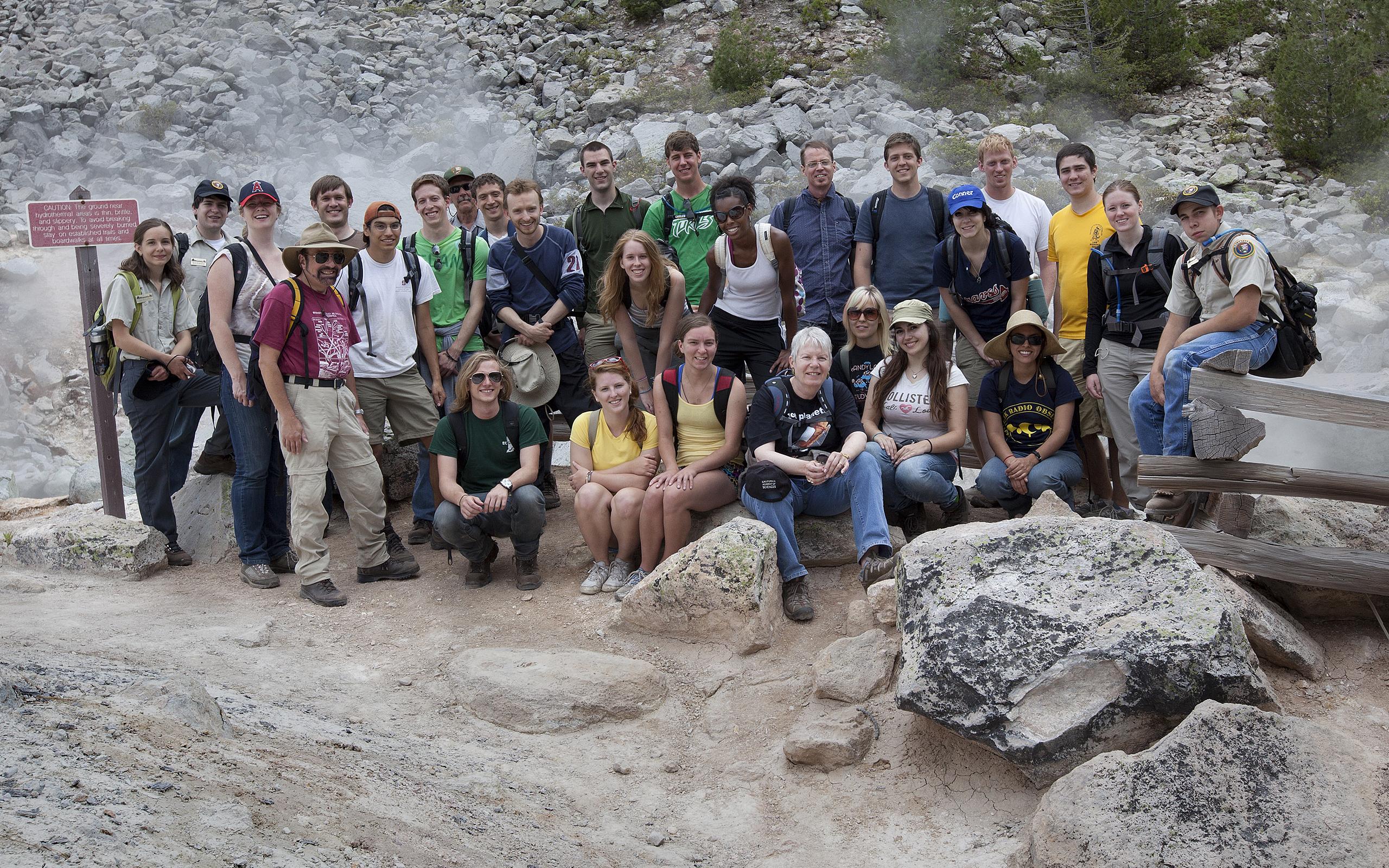
Life in the Universe –Astronomy, Astrobiology, and Planetary Science at the SETI Institute
General Information about the SETI Institute REU Program
Download the REU Flyer 2025
What is it?
Students will work with scientists at the SETI Institute and at the nearby NASA Ames Research Center on projects spanning the field of astrobiology, from microbiology to planetary geology to observational astronomy.
Eligibility requirements
- Undergraduate student
- Has completed freshman year before the summer of the internship
- Will still be an undergraduate during the fall term following the summer of the internship
- U.S. citizen or U.S. permanent resident (i.e., green card)
- Ready to devote yourself full-time to a 10-week summer internship at the SETI Institute.
Applications will be available Dec. 2, 2024, due Saturday, February 1, 2025.
Program dates: June 1 to August 9, 2025.
Please Note: We may be able to work with you if your final exams do not end before the program start date. We require all interns to be present for the entire program, including the first day. However, we are willing to proctor final exams, if your institution is willing to allow such an arrangement. It would be up to you to arrange this with your institution.
Financial support
$7,000 ($700/week for the 10 weeks of the program).
In addition, participants will be provided with dorm housing and travel reimbursement for travel from home or campus to the San Francisco Bay Area.
The Program
The SETI Institute (www.seti.org), a non-profit private, scientific research institution located in California’s Silicon Valley, invites you to apply for a summer Research Experience for Undergraduates program for highly motivated students who are interested in research related to astronomy, astrobiology, and planetary science. You will work with scientists at the SETI Institute and NASA Ames Research Center. Research topics span the field of astrobiology, from microbiology to planetary geology to observational astronomy.
The program includes a week-long field trip to Hat Creek Radio Astronomy Observatory in Northern California, and to nearby Lassen Volcanic National Park. At Hat Creek, students will engage in a collaborative radio astronomy project focused on the SETI Institute’s Allen Telescope Array. At Lassen, a field experience studying hydrothermal systems will give students an opportunity to consider habitability and other topics in astrobiology.
Students will also participate in local field trips to places such as historic Lick Observatory, the NASA Ames Wind Tunnel facility, and other nearby locations of scientific interest. They will attend seminars, lectures, and discussions on astronomy, astrobiology, and planetary science. Students will live in dormitory housing at nearby NASA Ames Research Center. At the end of the summer, students will give presentations on their research projects, and many will be funded to present their research at various national scientific conferences.
The SETI Institute welcomes REU applicants from all walks of life, including those who are from communities that are underrepresented in astronomy and other STEM fields; including Black, Native, or Latine students, as well as veterans, students with disabilities, and students who are part of the first generation of their family to attend college. We also welcome students who are part of the LGBTQ community. Our admissions decisions are based solely upon a student’s preparation to engage with technical project content and the extent to which they would benefit from our program.
It is wise to apply to many internship programs, not just ours! Click here (https://www.nsf.gov/crssprgm/reu/reu_search.jsp) for a NSF website listing REU programs, of which the SETI Institute program is only one of many.
Click here (https://intern.nasa.gov) for a NASA website listing a variety of internship opportunities.
Two main research areas will be emphasized, with projects including:
- Astronomy and the Search for Extraterrestrial Intelligence (SETI), including but not limited to:
- Planetary formation
- SETI and radio astronomy
- Extrasolar planets
- Planetary Science and the Search for Life in the Solar System, including but not limited to:
- Saturn’s rings
- Mars geomorphology and spectroscopy
- Survival of microbes under extreme conditions
